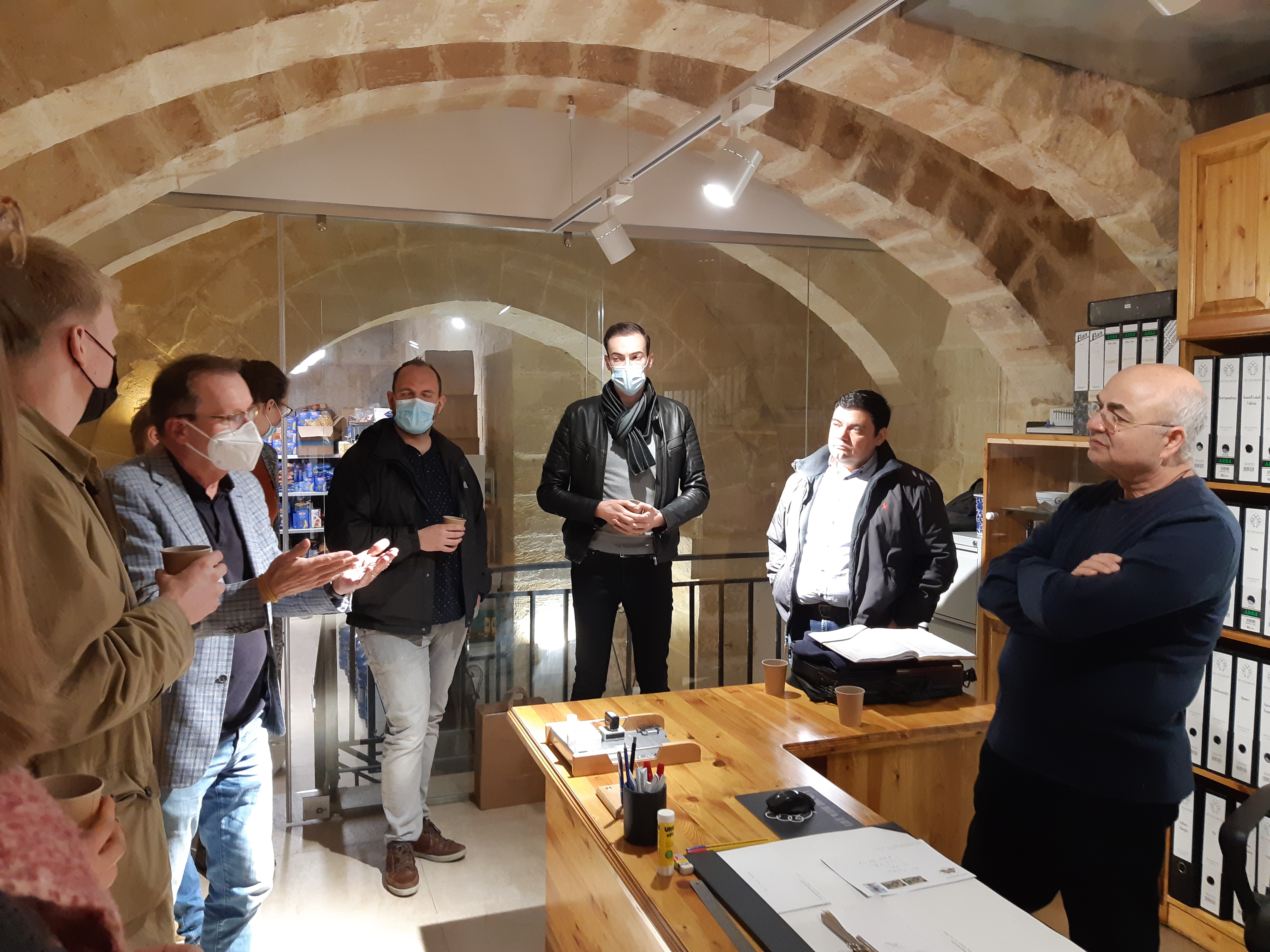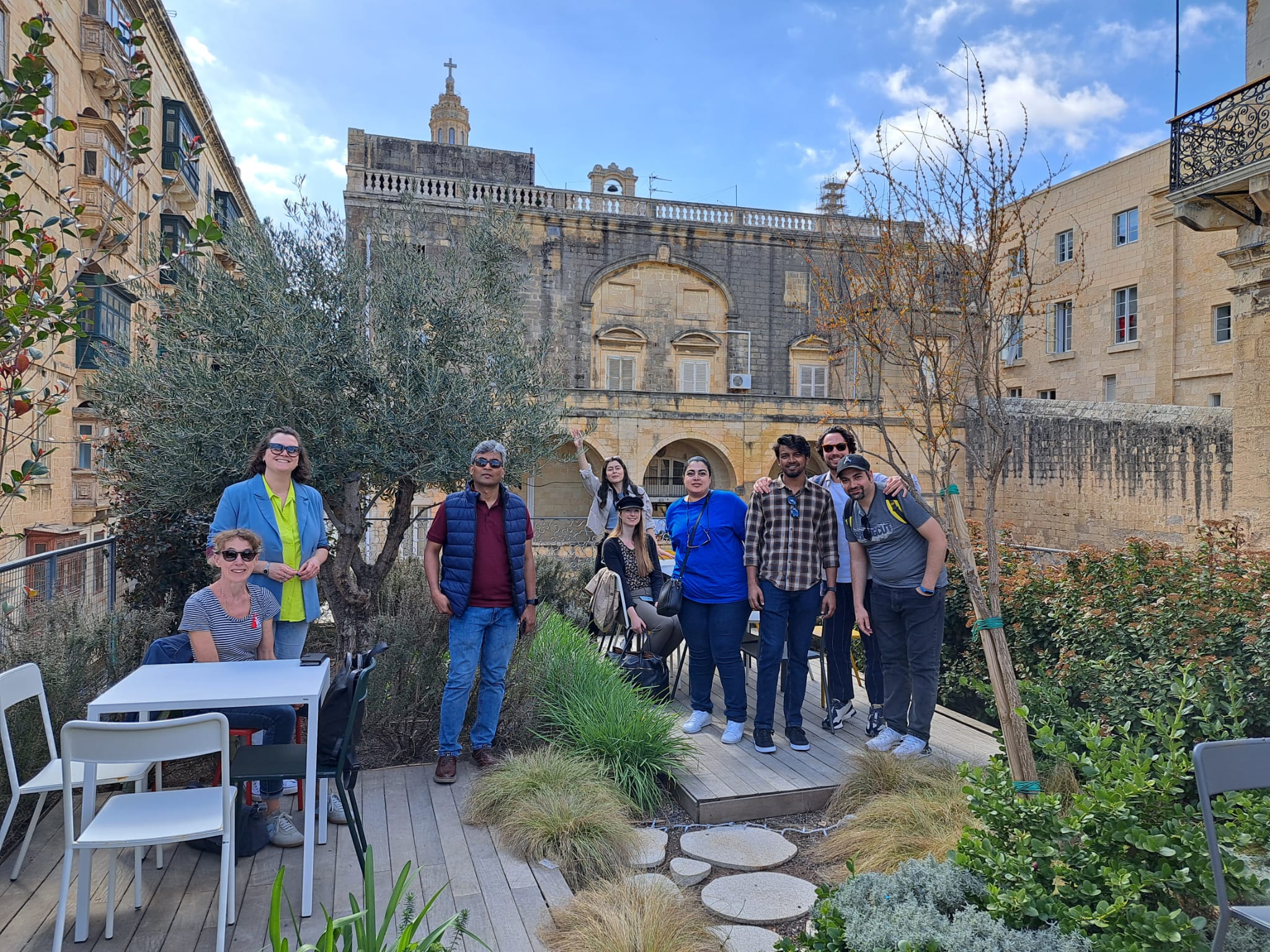The transformative power of the Imagineering field trip

International field trips provide real-life experiences related to the integral entity of study programmes, enabling students to inquire about varied content-related information by observing, analysing, inquiring, and devising their own explanations for how and what they are learning. The Master in Imagineering study programme relates to the connotation of expedition learning, where both educators and learners co-create a common ground for transformation and evolution design. Therefore, the role of the field trip is referred to as a significant milestone and experiential learning pillar of the educational model.
Margo Rooijackers is a senior lecturer and researcher at Breda University of Applied Sciences.
Liliya Terzieva is professor of Designing Value Networks at The Hague University of Applied Sciences.
Methodology
The methodology used in this study consisted of two types of data collection. Firstly, an open-ended and closed inquiry questionnaire was constructed around four simple questions relating to positive, negative, and other aspects of each of the Imagineering field trip categories. This survey was distributed among a group of 14 students after their field trip experience. The second phase was to engage in open-ended, face-to-face interviews, held with six students of the group. The field trip took place in spring 2022, lasted two weeks and the destination was Malta.
Results
The international field trip experience reinforced how fostering positive relationships between the university classroom and wider community empowers students with the professional and personal competencies and confidence necessary to advocate social innovation and business modelling. In Malta the active learning that had occurred in the community on a daily basis was celebrated, the pedagogy of experience that had enhanced the knowledge and understanding of issues related to difference, privilege, development, identity building, and respect for intercultural diversity.
This field trip really made me realise how such complexity could be tackled in a completely different context.
Field trips as helpful educational tools in effective learning
The results show that the majority of students are of the opinion that field trips provide a practical approach to the curriculum, as well as self-experience and observation to increase knowledge. It also promotes interaction between lecturers and provides students with the opportunity to overcome difficulties, show their individuality and become aware of their professional skills.
Field trips as enhancing the development and improvement of professional and personal competencies
Regarding the development and improvement of professional and personal competencies (based on the TRIAL competencies: transparent, reflecting, inspiring, appreciating, leading) the results show that the majority of students consider field trips helpful in developing leadership qualities, promote cooperation, enhance a sense of discipline and increase confidence. Furthermore, they support social training.
Short descriptions of the field trip projects
In this part we summarise three visions of Malta blockchain futures of food that students envisioned in collaboration with representatives from local culinary and food ventures, such as the Mediterranean Culinary Academy, Merill Rural Network, and Malta Rural Tours. By working together, Master Imagineering students at Breda University of Applied Sciences (the Netherlands) and students from the Center for Distributed Ledger Technology of the University of Malta responded to the 2022 challenge of "NFTs, Tokens and Edible ‘Assets’: Speculative Blockchain Futures of Food and Dining in Malta”. They experienced local food, visited farms and different sites. They also documented and interviewed numerous stakeholders to prepare their design mock-ups, videos, and proposals.
The Rooftop project won the social impact prize for their idea of engaging homeless and stateless people in Malta in sustainable farming practices and greening of the bare rooftops with utility tokens. Based on their extensive interviews with policymakers, entrepreneurs and local NGOs, the team identified the stakeholders that would support such greening, inclusive and social efforts. We discussed how such green rooftops would serve as community gardens or decentralised local farms with every roof specialising in different veggies, and what would be the best way to help the excluded people in Malta.
The second project ‘Collectible Stories - Mapping Malta's Treasures’ won the prize for creativity with its idea of geo-NFTs unlocking stories as part of a final recipe or challenge while engaging with local products and experiences. The prototype presented something of an NFT-based tourist guide or puzzle that people unlock by not only buying the token but also physically visiting and experiencing the ‘treasure hunt’. The project combined elements of games with NFT interaction in rural tourism services. The students created a map with different NFT quests introducing local stories and products that resulted in the final personalised recipe, like an oracle.
The third ‘GROW: the movement towards local sustainable food in Malta’ project won the prize for the most innovative and workable solution using blockchain to support local and sustainable food. The team impressed the jury with their fully functional prototype of a service that offers NFTs via a website to support community investment in sustainable irrigation systems through rainmaker technology that harvests water from air humidity. The charity NFTs also supported direct engagement with the farmers and issues of local food.
Field trips as beneficial for society and individuals
The majority of the students think that field trips promote cultural and historical heritage as well as make them aware of facilities available within our society. They are also helpful in achieving better results and performance, selecting a specific field of study, and becoming one of the sources to meet the needs of higher education.
Field trips as contributing to knowledge development

The results suggest that students perceived the field trip contributed highly to their knowledge development in areas such as complexity theory, imagineering methodology, design thinking and doing, and social constructionism. For instance, one student remarked: "Wow! I have never learned so much in such a short amount of time or remembered so much of it! The stuff learned is still in my head, every day, unlike other classes, we experienced what we were learning, and that made all the difference.” Another student wrote, "The purpose of this field trip was to explore food, cuisine and the impact it can have through NFTs. My favourite part of the trip was the discussion on how humans impact food through technology. I gained a great deal from that discussion.”
And a third quote clearly illustrates the gain in conceptual knowledge: "I think anytime that you talk about the organisation and solving its issues you are going to have people who are extremely opposed to any kind of change. When it comes to organisational development and big business, the organisation often loses in favour of the chaos. It is very complex trying to let people continue to make a living in the emerging 2.0 world, while still trying to protect linear behaviour. This field trip really made me realise how such complexity could be tackled in a completely different context.”
Field trips as strengthening a positive learning attitude
Finally, a key theme that emerged from the questionnaire was a positive learning attitude. Most students stated that learning experientially in authentic contexts was a foundational model of the Imagineering field trip they took part in: "Learning experientially in authentic contexts made it unbelievable seeing whole organisations transform”.
Conclusion and reflection
Imagineering field trips are not mere outings; they serve as catalysts for powerful transformative learning. A well-designed trip can contribute significantly to the Imagineering students’ holistic development, bridging theory and practice. The international context, beyond classroom walls, ignites curiosity, deepens understanding, and fosters connections. This fresh context allows students to explore real-world innovation and develop as transformational leaders. As such, field trips are an essential tool within the Imagineering educational programme. The challenge is to carefully design and execute these field trips to maximise the impact on the students’ experiential learning journey.
More information
- For a video impression of the Imagineering fieldtrip 2022 see: https://vimeo.com/719383058
Sources
- This paper is an adapted version of: Terzieva, L., Rooijackers, M. & Kera, D, 2022, The role of the fieldtrip in the Imagineering educational practices. In: Innovative teaching and learning in higher education – conference proceedings. Graz: FH Joanneum, pp. 83-91.




































































